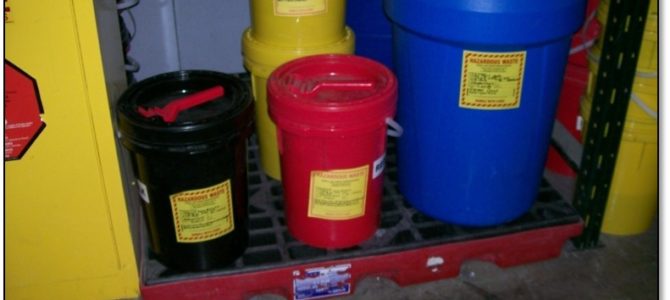Yes. USEPA allows for an exceedance of the hazardous waste generator volume threshold / limit if due to the COVID-19 public health emergency.
Pursuant to Federal USEPA regulations some generators of hazardous waste are limited to the volume of hazardous waste they may accumulate on-site at one time. Generators that exceed this limit / threshold either lose their allowance to accumulate hazardous waste without a permit (SQG) or must comply with the regulations of the higher generator category (VSQG to SQG). Those thresholds / limits:
- Large quantity generator (LQG) has no volume threshold or limit.
- Small quantity generator (SQG) may not exceed 6,000 kg (13,200 lb) of hazardous waste on-site at one time.
- Very small quantity generator (VSQG) may not exceed 1,000 kg (2,200 lb) of hazardous waste on-site at one time.
Unlike the on-site accumulation time limit for hazardous waste accumulated by LQGs and SQGs, USEPA regulations do not provide for an exceedance to these volume thresholds / limits.
|
Not sure of your hazardous waste generator category? |
That has changed due to USEPA’s Temporary Enforcement Discretion Policy in Light of COVID-19. Part I.D.4 reads (emphasis added):
If a facility is a generator of hazardous waste and, due to disruptions caused by the COVID-19 pandemic, is unable to transfer the waste off-site within the time periods required under RCRA to maintain its generator status, the facility should continue to properly label and store such waste and take the steps identified under Part I.A, above. If these steps are met, as an exercise of enforcement discretion, the EPA will treat such entities to be hazardous waste generators, and not treatment, storage and disposal facilities. In addition, as an exercise of enforcement discretion, the EPA will treat Very Small Quantity Generators and Small Quantity Generators as retaining that status, even if the amount of hazardous waste stored on site exceeds a regulatory volume threshold due to the generator’s inability to arrange for shipping of hazardous waste off of the generator’s site due to the COVID-19 pandemic.
Note1: The reference to Part I.A in the above quotation is to the General Conditions of the enforcement discretion which pretty much says:
- Generators should make every effort to comply with their environmental compliance obligations, and;
- If compliance is not reasonably practical, generators should act responsibly to minimize the effects and duration of the non-compliance, return to compliance ASAP, and document everything.
Please refer to this article if you are interested in the first part of the above quotation that refers to the enforcement discretion available for the on-site accumulation time limits of a LQG and SQG
USEPA’s temporary policy clearly allows for an enforcement discretion if a VSQG or SQG exceeds their on-site accumulation volume limit / threshold as long as other conditions of the policy are met.
|
Daniels Training Services, Inc. 815.821.1550 |
So, what’s a hazardous waste generator to do?
- Contact your regional USEPA (if you operate in a state lacking RCRA authorization) or your state environmental agency (if your state has RCRA authorization) to inform them you will – or have – exceeded your on-site accumulation volume threshold / limit. This notification is not required by the regulations or the enforcement discretion, but I recommend you do it anyway. Read: RCRA State Authorization
- Comply with all other Federal and state regulations applicable to your hazardous waste generator category to the best of your ability during the COVID-19 public health emergency.
- Non-compliance with other regulatory requirements (e.g., weekly inspections) due to the COVID-19 public health emergency must be addressed separately.
- Document your activities and correspondence and maintain as a record.
- Return to compliance as soon as you are able.
